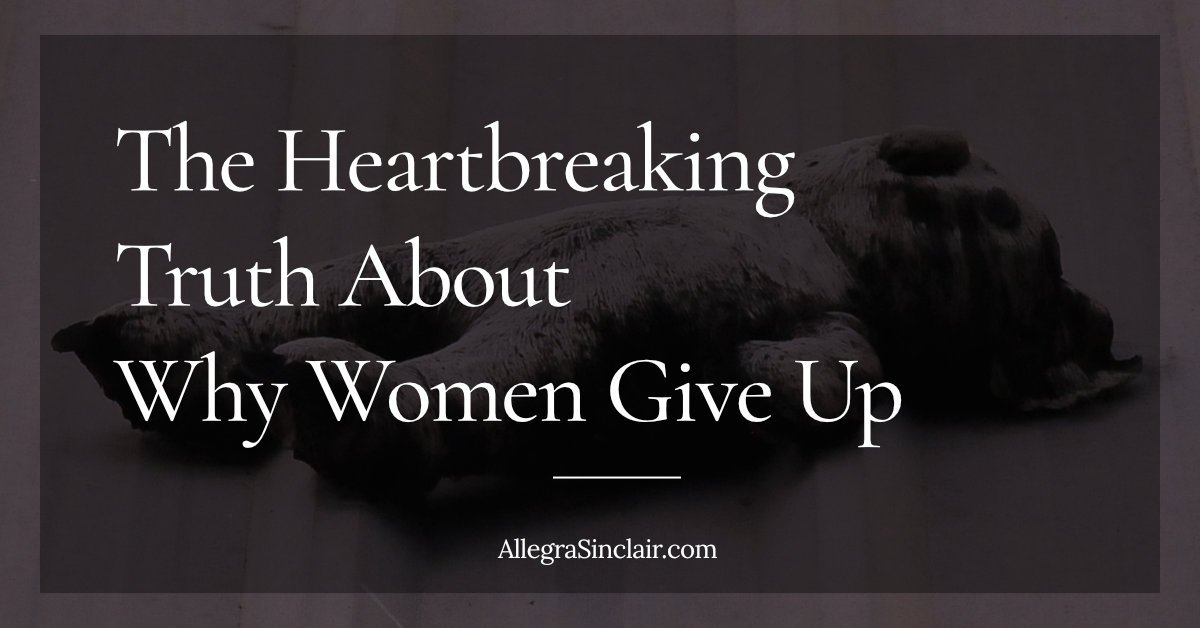Want to Know Why Your Lack of Boundaries is Killing You?
Today’s episode is called, why a lack of personal boundaries is killing you. Allowing others to violate your boundaries kills your spirit, your hopes, and your joy. A lack of boundaries is very damaging to your self-esteem. There are some people who are more susceptible to low self-esteem than others, but personal boundaries are important for all of us.
In today’s podcast you will learn:
Listen to find out how you can establish healthy personal boundaries with these tips:
- Communicate openly about what your boundaries are
- Value yourself
- Define yourself
- Place a higher priority on yourself
- Make your boundaries firm, reasonable and clear.
- Be flexible.
- Learn to love saying no
Why are personal boundaries important?
Personal boundaries are important for a couple of reasons:
- They serve as barriers to protect your self esteem.
- They’re tools for establishing limits with others and communicating that there are certain things that you won’t tolerate.
Your personal barriers demonstrate that there are certain behaviors, interactions, and people that you are unwilling to accept in your life.
[socialpug_tweet tweet=”People without personal boundaries routinely end up in negative situations and relationships.” display_tweet=”People without personal boundaries routinely end up in negative situations and relationships.” style=”5″]
People without personal boundaries routinely end up in negative situations and relationships. Without limits, you’re a victim to the whims of those around you. So if you don’t set any rules, that means that you are going to be ruled by others.
Personal boundaries are about respecting yourself and demanding respect from others. If you don’t respect yourself and hold other people accountable for treating you respectfully, that kills you.
Maybe it doesn’t kill you physically but it kills you emotionally and it kills you psychologically. It kills you in all the ways that women need to guard their hearts. It kills that warm, sweet, gooey center that is who you really are. That special magic that you uniquely bring to the world is killed when you don’t protect your personal boundaries.
I remember in Star Trek The Next Generation (nerd alert!), when the Captain drew a line in the sand and said, “Here’s the line, right here and no further.”
That idea lived with me for a while because I realized it was magical. I can set a line and tell people they can only come here and no further?! I love that. So then I went to work trying to figure out how I could do some of that line-setting in my life.
The Right Way to Set Boundaries
My first strategy for helping you set up personal boundaries is that you communicate openly about what your boundaries are. And when people cross your boundaries, it’s important to tell them. Many times this is as simple as refusing a request. Other people can’t give you what you want, if you don’t tell them what that is.
The second step is to communicate openly that you value yourself. You have a responsibility and the privilege of setting your own boundaries as you see fit. Some people will never treat you better than you insist on being treated. So we all have to take responsibility for taking care of ourselves. No one else is going to take responsibility for your self-esteem.
That doesn’t mean that everybody else in the universe is waiting to attack you, but they don’t have as vested an interest as you do, in protecting your well-being.
Third, once you decide that you want to value yourself, part of that process is defining yourself. Decide who you are, decide who you want to be, and how you deserve to be treated. Ask yourself:
What are you willing to accept from others?
Know that your boundaries can change over time. What you are willing to accept, can change. I suspect you are a very different person today, than you were five years ago. So it’s entirely possible that what you’re willing to accept today is different than what you were willing to accept then. That is okay. You can define yourself and then re-define yourself. But if you don’t define yourself, then the rest of the world will do it for you, and you won’t like it.
I’ve talked about communicating your boundaries, openly valuing yourself, and yourself. The fourth strategy for setting personal boundaries is to put a higher priority on yourself. I know that sounds silly, but what you focus on you get more of, and what you measure, you improve, We know this from the business world and it’s true in our personal lives also.
When you make yourself a priority, your life changes and helps you with establishing and maintaining good personal boundaries. Other people are important, but they’re no more important than you are.
If you take care of yourself first, you’re in a better position to take care of others. If you have a heart that wants to serve and help others, I understand, I have that too. However, if I run myself ragged, then I’m no good to anybody else. If I take care of myself, first, I can be a better friend, parent, spouse, and employee; all the jobs that women have that are important to us.
[socialpug_tweet tweet=”It is not noble for you to fall to pieces while you take care of everybody else. #AllegraIsm” display_tweet=”It is not noble for you to fall to pieces while you take care of everybody else. #AllegraIsm” style=”5″]
It is not noble for you to fall to pieces while you take care of everybody else. It’s not selfless, cute, charitable, or Christian. It’s not any of the things that we tell ourselves when we put ourselves last.
Putting yourself first and taking care of yourself is all the good things. It is important, it is critical, it is magical, and it is Christian.
The Power of Setting Limits
You may not need to set new personal boundaries in all areas of your life. Maybe you want to focus on a couple of areas in which you need to set better limits. Maybe you will choose to stop volunteering for every new project that somebody suggests at work. Maybe if eight projects are suggested you could volunteer for four instead of the eight that you normally would.
Maybe you need to stop accepting emotional abuse from a friend, male or female, even if it comes under the umbrella of, “I’m just kidding”. If you perceive it as abusive, it’s abusive. I don’t need to define that for you.
Maybe you need to stop loaning money to people who never pay it back.
I don’t know what your personal boundaries are, but I do know that in life, you get what you’re willing to tolerate. So I want to know, what are you no longer willing to tolerate?
The fifth strategy is to make your boundaries firm, reasonable, and clear. If others know where you stand on certain issues, there’s less chance for confusion, miscommunication, conflict, drama. It is possible to set boundaries that are too strict. You will know that your boundaries are too strict because they will feel limiting to you, which is not the intent. Once you realize this, you can loosen them up.
Now stay with me here because the sixth strategy sounds counter-intuitive. I want to make sure that your boundaries are firm and clear but I also want you to be flexible. Now does that seem like I’m contradicting myself? It might, but there’s the difference between firm and flexible, these are not opposite conditions. You don’t have to follow your own rules 100% of the time, you can decide who and what you want to let in, and what’s best to keep out. So you can be flexible and firm in that.
Studies have shown that people with some flexibility in their personal boundaries tend to have the best combination of happiness and success. Being too rigid with yourself can be just as problematic as being too loose.
Number seven is so good, I should have said it first. To avoid a lack of boundaries, learn to say no when you need to. This is my favorite strategy! One of my friends tells me all the time that, ‘no is a complete sentence’. I tend to say no and then explain why I said no. Guess what? People don’t care why you said no. They don’t necessarily want to hear no, but no is not fatal.
So if I say no, and I’m just done with the sentence, it feels better. I don’t have to go into a whole story about why I said no because it doesn’t matter. If I explain why I said no are they going to get what they asked me for? No. If I don’t explain why I said no, are they going to get what they asked me for? No.
When you over-explain your decision, you undermine your personal boundary. If I have a boundary that you can’t drink alcohol in my home, and you come into my house with vodka I can simply say, “I don’t allow alcohol in my home”.
If my friend asks, ‘Well, just this once, can I bring in this vodka’, the answer is no. Complete sentence.
Now if I say no because of this, and this and this, it feels like I’m negotiating when I’m not. I’m communicating clearly, openly and firmly. You see how that felt different when I just said no? And I wasn’t mean. I didn’t say no, I hate you leave and never come back. Or no, I never liked you and by the way, your purse is ugly. I just said no. But if I said no because and then I started to explain more, I would physically feel different. And it would communicate that if they kept at me, they might wear me down. I don’t want to communicate that. So learn to say no when it’s needed.
It’s OK to Take Care Of Yourself
Boundaries are limits on what you’ll accept from others. So avoid getting into the habit of always trying to make sure everybody else is happy. Healthy boundaries and just a little bit of selfish, go hand-in-hand quite nicely. Even more than that, having healthy personal boundaries is an exercise in caring for and respecting yourself. It’s a signal to the world, about how you feel about yourself. You have a right to expect a certain level of respect and consideration from others.
If your lack of boundaries is killing you, now is a great time to start taking better care of yourself. Adequate personal boundaries are not only good for your self-esteem and confidence, they’re also great for your general mental health and well-being. If you take better care of yourself, then you’ll be able to do the things that you need and want to do for friends, family and the rest of your circle.
If you need a little help with your lack of boundaries, schedule a free discovery call so I can help you take better care of yourself.
10 Ways Women Can Become More Confident








